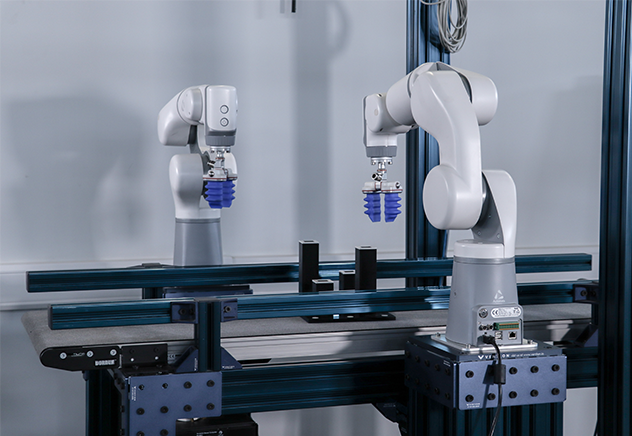
Demonstration of an Innovative Robotic Separation Method of the Construction and Demolition Waste

Frederick University will be hosting an event within the frame of the “DEFEAT - Development of an Innovative Insulation Fire Resistant Façade from the Construction and Demolition Waste” project on the 17th of February 2023.
The scope of the event is to present the methodological approach applied for the design and implementation of the robotic separation method of the Construction and Demolition Waste (CDW) and demonstrate the operation of the system. The event will take place on the 17th February 2023 (10:00-12:30) at Frederick University Civil Engineering Laboratory (Christou Kythreoti str. Pallouriotissa Industrial Zone)
The DEFEAT Project (INTEGRATED/0918/0052) has been co-funded by the European Regional Development Fund (ERDF) and the Cyprus Government, through the RESTART 2016-20 framework program of the Cyprus Research & Innovation Foundation.
The Agenda of the event will be announced soon.
DEFEAT Project
Construction and Demolition Waste (CDW) approximately represent one third of the total waste generated by economic activities and households, which in EU-28 are about 2.5-3.0 billion tonnes per year. In several publications, it is reported that the Construction and Demolition Waste generation amount has been increased by the impressive percentage of 300% between the years 2003 – 2013. In Cyprus, the management of CDW appears to be underperforming, despite the fact that a comprehensive legislative framework concerning their management is in place since 2011.
In addition, over the last decade the construction activities in Europe were accelerated, as well as the rehabilitation activities for energy saving, as a general need to facilitate accommodation. According to a study carried out by the European Union, the high rate of household energy consumption over the past twenty years (250-300 Mtoe) is attributed to building requirements for heating, cooling and ventilation, due to unsatisfactory thermal insulation.
Further, only in recent years has the safety of such infrastructures gained increasing attention, particularly the issue of fire. This transformation in the mentality is attributed to a series of large fires that have taken place in the last years, which led to human casualties, major structural damages and serious consequences for the regional economies. It has been reported that the fire incidents in Europe have been increased by the tragic percentage of more than 300% between the years 2010 – 2015. At the same time, the current market thermal insulation solutions consist of materials that are either combustible, or undergo spalling phenomena in case of fire incidents, or materials which they have high cost, or materials, the production of which results in high environmental impact.
The DEFEAT project tackles the above-mentioned barriers by developing in a pilot scale, and through detailed experimental study, an innovative separation method of CDW, as well as a composite material generated also from the CDW, which has low thermal conductivity, satisfactory mechanical properties, and at the same time is fire resistant. The produced material can be applied as a façade, either on existing or new construction projects.

